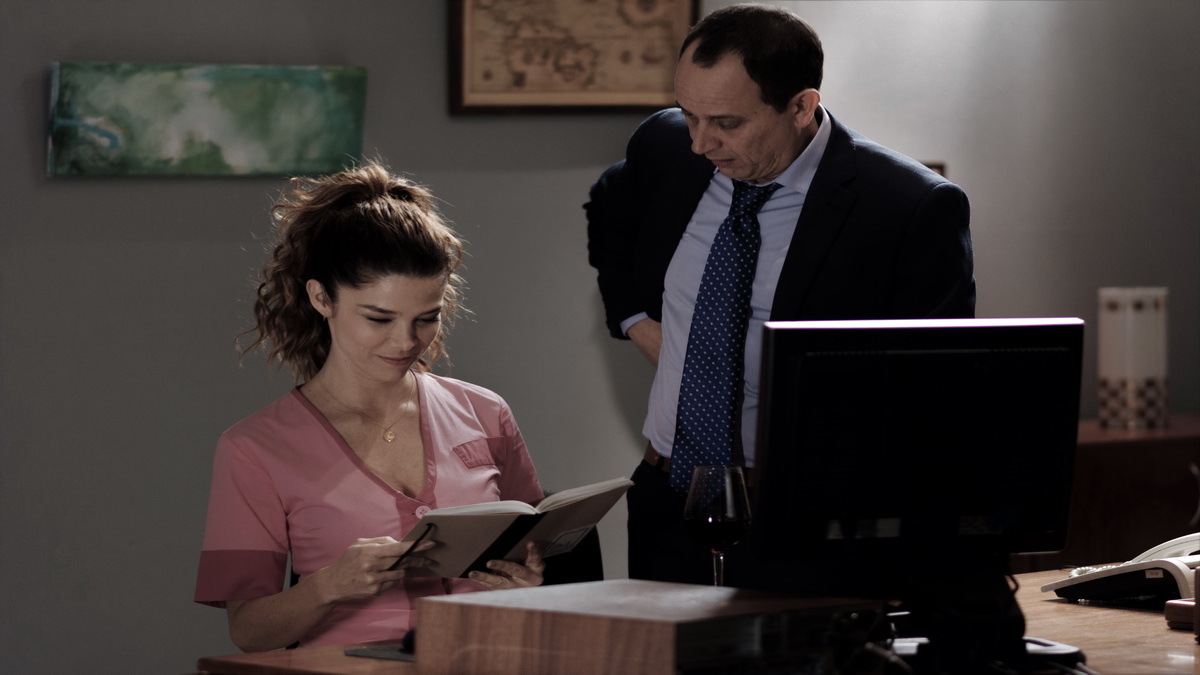ÚLTIMOS DÍAS EN LA HABANA (2016) de Fernando Pérez

“No soy nada sin tu amor”
¿Y si de Valencia a La Habana fuese cuestión de unos minutos? Era una preciosa mañana de abril en la ciudad del Turia, unos cuantos miembros de la prensa esperábamos frente a la pantalla de una sala de los Cines Babel. Y allá vamos, directos a la isla bonita de la mano de Fernando Pérez Valdés. Una vez allí nos dejamos caer en una ciudadela, una corrala cualquiera de la ciudad, entremos. En ella encontramos a Miguel, un hombre de mediana edad, que sueña con emigrar a E.E.U.U y mientras llega o no su visado cuida de Diego, su amigo o camarada, homosexual y enfermo de SIDA que sueña con vivir un día más. Habrá a quien le recuerde a “Fresa y Chocolate”, película también cubana. Pero el Diego que nos ocupa, su historia, la de Miguel tiene poco que ver con la defensa de los derechos o la situación de los homosexuales.
Y bailando al ritmo de un son cubano, y nos sirve cualquiera: salsa, bolero o habanera. Paseamos por sus calles y callejas, dejémonos caer en cualquier supermercado, bar o barbería. ¿Y si nos sorprende un chaparrón? Subamos a un taxi y disfrutemos de la verborrea del taxista. Todas esas escenas, ese costumbrismo bien entendido, que no cae en el morbo de las miserias, nos parece real porque es real. La ficción se tiñe de documental para revelarnos la verdadera razón, la causa, lo que une a todos los personajes, protagonista y secundarios, “No soy nada sin tu amor” una pintada fugaz pero significativa. Porque el amor es lo que lo mueve todo, el mundo e inclusola ciudad. Cada canción de la banda sonora habla de él. Canciones que surgen de una radio, televisión o hilo musical de supermercado, a fin de cuentas, de donde suele llegarnos la música en la vida real.
Pero un enigma nos persigue a cada paso que damos ¿Quién es Miguel? ¿Qué relación le une a Diego? ¿Por qué cuida de él? ¿Cuál es su secreto? ¿De verdad importa? Y tras tanta pregunta… el silencio como única respuesta para estimular nuestra imaginación.
Nuestra calificación: (4/5)
“I am nothing without your love”
Try to imagine that traveling the distance between Valencia and La Havana was matter of minutes… It was a sunny morning in Valencia, some members of the press wait in front of a screen in Babel Cinemas. And Here we are…ready to go to the “Isla Bonita” guided by Fernando Pérez Váldes, the director. There we leave to go in a central courtyard each one, here we discover to Miguel, an elder man. He dreams to go to U.S.A for live there, while his visa goes or not he takes care of Diego, his friend. Diego is a gay and he is ill with AIDS. But he dreams with living one more day. It is possible that some of you think is like “Fresa y Chocolate” a Cuban film also, but this Diego, his story with Miguel, has a little to do with the defence and claims about the gays in Cuba.
Dancing to the rhythm of some Cuban son, either of them could be good: the salsa, bolero or habanera we can walk around streets of Cuba. We can enter in a supermarket, bar or barbershop. And, if suddenly the rain surprise us we will be able to take a taxi and enjoy talking with the taxi driver. Every of these scenes, this Costumbrism, without any unhealthy interest in the misery, it seems real because is real. The fiction is dyed with the reality to reveal the reason, the cause, that thing that join to every characters “No soy nada sin tu amor” (“I’m nothing without your love”). A graffiti very significant because love moves the world, the city, the lifes. Each song speaks about love. The songs, all of them, rise from the radios, TVS or piped music in the supermarket, like in the real life.
But an enigma pursues us in all movie: Who is Miguel? What is the relationship with Diego? Why does he take care of him? What is the secret? And Is it that important? And finally, the silence like the single answer…
Traducido por: Iulia García.
Our rating: (4/5)





